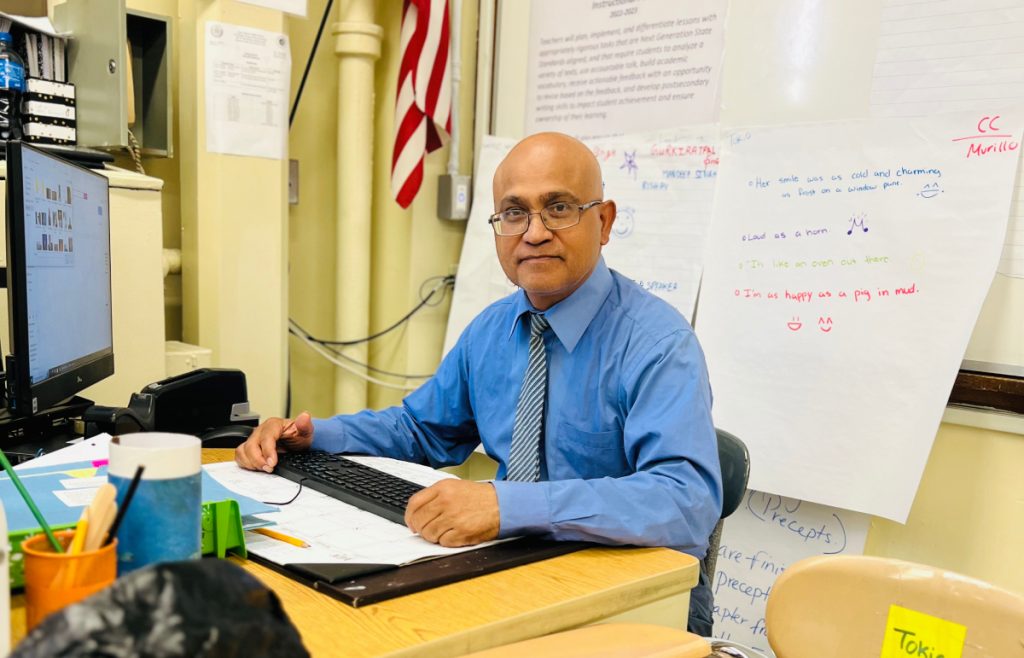The Guyanese diaspora played a significant role in the struggle against the Guyana dictatorship and for free and fair elections in the former homeland as well as in the removal of the ban on foreign foods and religious goods. The struggle against the dictatorship took place in several countries, with the lead role in the US, and therefore can be considered as a global event or movement even though just a handful of individuals in each location in the large diaspora actually took part in it. The few individuals, including this writer from 1977, were involved in what was transnational anti-dictatorial activism with others internationally. The anti dictatorship struggle (1966-1992) must be looked at as a critical event in the creation of a new form of transnational citizenship of a people abroad, actually only some overseas Guyanese, of their global networking, and of their long-distance nationalism to champion democracy and ending the food ban. They lived abroad, but some of them were very active in the affairs of their former homeland in the anti-dictatorial struggle and the movement to remove the ban of foods.
After political independence in 1966, Indians began migrating to USA and Canada. Before independence, they opted to settle in England. Africans also settled in UK from the 1950s onwards and USA in the 1960s just before Indians began large scale movement to America. In England, USA, and Canada, there emerged linkages with kin, friends, and villages and or neighborhoods— sending remittances and material assistance (barrels and boxes of goods) to raise standard of living and beautify neighborhoods. With time, linkages developed with political parties. Party support in the diaspora mirrored the racial divisions back home — Africans with the PNC and Indians with PPP.
During the 1960s there was an African group in Crown Heights, Brooklyn that emerged as a support group of PNC; it received support from prominent wealthy Black Americans like Percy Sutton, Earl Graves Sr., and John Johnson of Ebony Magazine, among others. They wisely advised Burnham against embracing socialism. The African support for PNC deepened during the 1970s and later years even during the height of the dictatorship and the collapse of the economy. Support for PPP among Indians in the diaspora emerged in the late 1960s and has continued till this day.
During the late 1970s, the ACG (supporting PPP) and Indo Club (supporting democracy) emerged. Arjune Karshan and Chuck Mohan and others started ACG. Vassan Ramracha, Baytoram Ramharack, this writer (Vishnu Bisram), among others started Indo Club. During the early 1980s, a WPA Support Group emerged and closely followed by a DLM Support Group. In the latter 1980s, there emerged a range of Indian opposition groups affiliated with political parties (URP, NRP, TUF) in Guyana and even for the PCD. There was also a small Afro support group for the PDM. They collaborated to mobilize the Guyanese diaspora for restoration of democracy. Groups also emerged in Canada. They were active in UK long before they emerged in America. Opposition activists travelled overseas and met members of the support groups discussing strategies to gain support from governments of host countries and fundraising drives.
Transnational networks by groups were developed not only with parties or political partners in Guyana but with other groups elsewhere to protest against the dictatorship and rigging of elections. They collaborated holding demonstrations in their countries of residence and in lobbying politicians and governments. In addition, members of groups printed political pamphlets and newsletters that were distributed at public venues and smuggled them into Guyana. They also smuggled pamphlets and other literature out of Guyana to share abroad. They acted as ‘smugglers of truth’ of what was happening in Guyana and even as smugglers of basic foods that were on a prohibitive list that led to prosecution, fines, and jail.
The various groups and or their members tried to influence the international media and politicians outside Guyana in an effort to get governments to pressurize the Guyana authoritarian government into restoring democratic governance and end the ban on foods and religious items. A very important strand of the ‘long-distance’ anti-dictatorial activism involved individuals from the Guyanese Indian and more specifically Hindu nationalists, whose family members or party activists were proscribed or imprisoned under various pretexts (like selling, trading, consuming contraband goods) or publicly opposing the dictatorship.
While the activists were combating the authoritarian state, the PNC mounted its own counter movement, a pro-government campaign overseas. While in Guyana, the PNC attacked parties and individuals, the PNC also attacked diasporic opposition activists. The government closely monitored the overseas activities of activists through diplomatic missions. The activists were harassed at the airport when they visited Guyana.
The diaspora activists did not back down to threats and intimidation. They were emboldened to carry on the struggle to its natural end. They were committed to freeing the people of their former homeland. The unrelenting struggle and the lobbying of foreign governments paid dividends. The governments of USA, Canada, UK called for economic reforms that led to the end of ban on foreign imports and religious items. This was followed by American demand for the restoration of democracy. The PNC caved in to international pressure to hold free and fair elections that it lost in October 1992.
